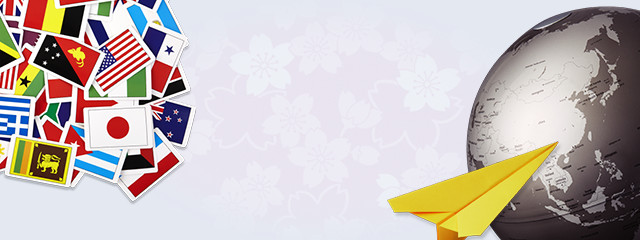
Faculty of International Studies
国際学部取り組み?プロジェクト紹介 詳細
更新日:2018年12月22日
【国際学部】リレー?エッセイ2018(25) Craig Mark "Modern Democracy and its Consequences"
Modern Democracy and its Consequences
Craig Mark
Citizens of countries with democratic political systems have the right to vote in elections. The outcome of an election or referendum can result in major policy changes, which can shift the direction of a country’s politics in very significant ways. This can be observed in recent and upcoming events in some of the world’s major democracies, including Japan.
In the United Kingdom (UK) the Conservative Party’s main promise to retain power inthe 2015 national election was to hold a referendum on exiting the European Union (EU), which became known as ‘Brexit’. It was largely expected by then Prime Minister David Cameron that the result would be a vote to ‘remain’. However, the 2016 referendum result was a narrow victory for Brexit, leading to Cameron’s resignation, and Theresa May becoming Prime Minister. An early election in 2017 resulted in a minority coalition government with the Northern Ireland-based Democratic Unionist Party, which threatens a ‘hard border’ being reimposed with the Republic of Ireland.
The Brexit plan Prime Minister May negotiated with the EU, due to be implemented from March 2019, has so far failed to win approval from Parliament, and she has already faced down a leadership challenge vote from within the Conservative Party. Should a successful vote of no confidence in her government take place in the near future, another early election could see a possible change of government to the opposition Labour Party in 2019, and possibly another Brexit referendum. The 2015 election and 2016 referendum therefore brought on a period of great uncertainty in British politics, something most voters in the UK would not have anticipated.
In the United States, President Donald Trump defied expectations by winning the Republican primaries, and then defeating Democratic candidate Hillary Clinton in the 2016 national election. Trump proclaims a populist nationalist agenda, reflected in his slogans such as ‘America First’, and ‘Make America Great Again’. Trump’s main domestic policy achievement has been a large tax cut for wealthy people and corporations. In foreign policy, Trump has withdrawn the US from international treaties such as the Paris Agreement on climate change, and the Trans-Pacific Partnership. The US has also raised tariffs on allies like Japan, as well as on strategic competitors like China.
The mid-term elections of 2018 saw a reversal of fortunes for the Republican Party in the US Congress though. While the Republicans retained control of the Senate, the Democratic Party won back a majority in the House of Representatives. The consequence of this election result is that the Trump Administration will find it difficult to pursue further legislative goals, which may even result in a federal government shutdown. It also means President Trump will face even greater critique from Congress over various potential criminal activities, such as collusion with Russia during the 2016 election, which is already under scrutiny from several independent investigations. As potential candidates for the Democratic Party primaries start exploring options for their campaigns, the 2020 presidential election is certain to be hotly contested.
In Australia, a national election is also due in 2019. Opinion polls indicate that largely due to recent leadership instability in the ruling Liberal Party, a change of government is likely. The conservative Liberal-National Party Coalition, which has been in power since 2013, is considered likely to lose power to the social democratic Labor Party. This could result in changes to a range of policies, including for environmental protection, housing affordability, treatment of refugees, and also a referendum on whether Australia should become a republic.
In Japan, the next election for the Upper House of Councillors is due in 2019, which could affect the ability of the Liberal Democratic Party government to pass legislation, should it lose the majority it currently enjoys with its minority coalition partner Komeito. Prime Minister Shinzo Abe is determined to continue to try to modify Japan’s constitution for the first time, regarding the role of the Self-Defense Forces, by 2020, before he finally completes a historic third term as Prime Minister in 2021. This would require a referendum to be held, following successful passage of relevant bills in the Diet.
Since the voting age in Japan has been lowered to 18, young people now enjoy the right to vote, and subsequently have the responsibility to inform themselves of the issues and policies that will be under contention. All Japanese university students, including those at Kyoritsu Women’s University, now share the opportunity to exercise their democratic rights as responsible citizens.







